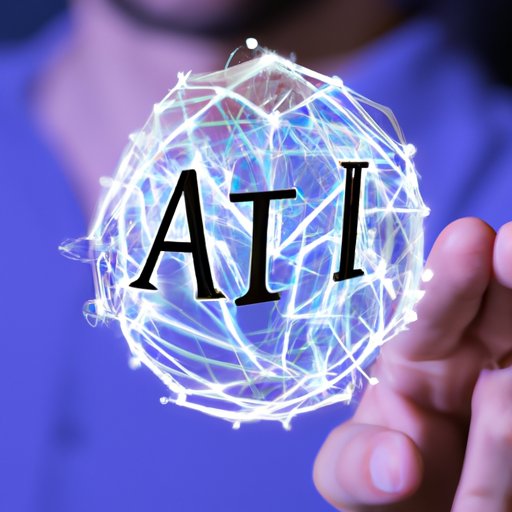Introduction
Artificial intelligence (AI) has become a hot topic in recent years, with many people debating whether or not it is truly intelligent. AI is defined as the ability of computers and machines to simulate human intelligence and behavior. This includes recognizing patterns, understanding language, making decisions, and solving problems. In this article, we will explore the debate around AI: Is it really artificial intelligence? We will look at the pros and cons of AI, examine its limitations, investigate whether it can think for itself, compare AI to human intelligence, and evaluate the potential of AI to replace human thinking.
The Pros and Cons of AI: Is It Really Intelligent?
When considering the debate around AI, it is important to weigh up the advantages and disadvantages of AI. On the one hand, there are many benefits to using AI, such as increased efficiency, cost savings, and improved accuracy. For example, AI can be used to automate mundane tasks, freeing up time for employees to focus on more creative and meaningful work. AI can also be used to analyze large sets of data quickly and accurately, allowing organizations to make better informed decisions. However, there are also some drawbacks to using AI, such as the potential for bias and the lack of human oversight.
Examining the Limitations of AI: Is It Truly a Replication of Human Intelligence?
When discussing the debate around AI, it is important to consider its limitations. AI is not yet able to replicate the complexity of human thought, meaning that it cannot fully understand context or infer meaning from conversations. AI also relies heavily on data, meaning that it can only be as good as the data it is given. As such, AI can be limited in its ability to make accurate predictions and decisions. Furthermore, AI is often constrained by ethical considerations, meaning that it cannot always act in the most efficient manner.
Can AI Actually Think for Itself?
Another point of contention in the debate around AI is whether it can actually think for itself. AI relies on machine learning algorithms to “learn” and adapt to new situations. However, these algorithms are still limited in their capability, meaning that they cannot completely replicate human thinking. Furthermore, AI is still largely reliant on human input, meaning that it cannot make decisions independently. As such, it is unlikely that AI will ever be able to think for itself in the same way that humans do.
Comparing AI to Human Intelligence: What Are the Differences?
When evaluating the debate around AI, it is important to consider the differences between AI and human intelligence. While AI is capable of performing certain tasks faster and more accurately than humans, it lacks the cognitive capabilities of humans. For example, AI is unable to recognize emotions, empathize with others, or make moral judgments like humans can. Additionally, AI lacks the creativity and intuition of humans, meaning that it cannot come up with innovative solutions or make unexpected connections.
Investigating the Potential of AI: Could It Replace Human Thinking?
Finally, when exploring the debate around AI, it is important to consider whether it could eventually replace human thinking. While AI is currently limited in its capabilities, advances in technology and machine learning mean that it could potentially become autonomous in the future. This raises some ethical questions, such as how should AI be regulated and what implications would autonomous AI have for society. Ultimately, the debate around AI is likely to continue for some time, as the technology evolves and our understanding of its capabilities increases.
Conclusion
In conclusion, the debate around AI is an ongoing one, and it is clear that there are both advantages and disadvantages to using AI. While AI is currently limited in its ability to replicate human intelligence, advances in technology mean that it could potentially become autonomous in the future. Ultimately, the debate around AI is likely to continue as our understanding of its capabilities evolves.
(Note: Is this article not meeting your expectations? Do you have knowledge or insights to share? Unlock new opportunities and expand your reach by joining our authors team. Click Registration to join us and share your expertise with our readers.)
